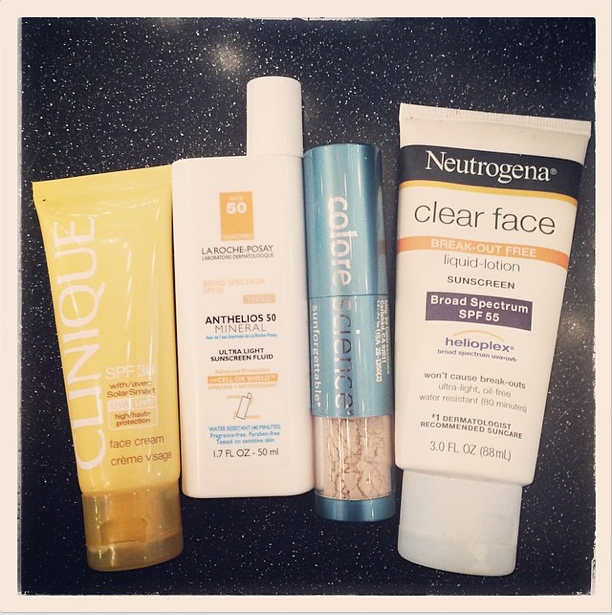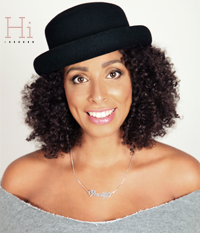Sunscreen? But I am black?!

It is June, we are already halfway through the year 2014. And the temperature is rising fast. With the festival season on its way starting this weekend with Pinkpop, and holydays are being booked, it is a good moment to protect ourselves from the sun. Inspired by this picture above, a collage of the favorite sunscreen products of one of my favorite Make-up artist Benjamin Puckey.
‘But I am black?’, some of you might think. At least, that’s what I use to think for a very long time. Does a person with a dark complexion need to protect her/himself from the sun? Let take a closer look..
Dark complexions have both advantages and disadvantages when it comes to sun exposure. On one hand, dark skin is less likely to get sunburned and less likely to develop skin cancer. On the other hand, because dark skin naturally provides protection from the sun’s ultraviolet rays, it prevents dark-skinned people from producing the necessary amount of vitamin D.
When people with lighter complexions spend time in the sun, their bodies produce melanin, the pigment that gives color to skin and creates a tan. Melanin serves as a natural defense against UV rays, and people with dark complexions; especially those with olive, brown or black skin, already have a high concentration of melanin in their skin. This high concentration of melanin is responsible for their dark complexions and protects them from burning easily. In fact, as the amount of melanin increases, so does the natural protection from sunburn. But while a higher concentration of melanin provides some sun protection, it doesn’t prevent skin cancer. In fact, many African-Americans with skin cancer don’t catch it early enough, which is why skin cancer fatality rates are higher among African-Americans than other ethnic groups.
Dr. Kavita Mariwalla, director of Mohs & Dermatologic Surgery at St. Luke’s in New York, prefers that her patients, including those with darker skin tones, use SPF 30. In fact more dermatologists are recommending SPFs between 25-30.
But everyone needs some sun exposure to produce vitamin D. Vitamin D, also known as the “sunshine vitamin,” helps the body absorb calcium. However, dark-skinned people’s high concentration of melanin makes it more difficult for them to produce enough vitamin D. In fact, dark pigment in the skin reduces the skin’s ability to synthesize vitamin D from sunlight by 95 percent. Lighter-skinned people can get enough vitamin D after 10 to 15 minutes of sun exposure a few times a week, but people with dark complexions may need five to 10 times more sun exposure to synthesize that same amount of vitamin D.
Even though vitamin D is important to your health, you should always wear sunscreen when spending long periods of time in the sun. If you’re concerned about vitamin D levels, speak to a doctor or dietician.
Also, for women that are pregnant, there is a higher risk for dark spots on the skin. Protection by sunscreen reduces the risk of permanent dork spots as well.
Conclusion: Get used to regularly applying sunscreen just as you would moisturizer. For normal, short-term exposure (and depending on your individual skin care needs), a moisturizer with SPF 15 will do., higher is even better. People often forget about sunlight that comes through office and car windows, as well as the windows of your home.
Photography: Benjamin Puckey



